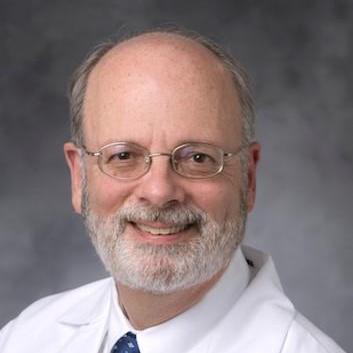
DURHAM, NC--The State of North Carolina enacted Session Law 2020-4, an Act to Provide Aid to North Carolinians in Response to the Coronavirus Disease 2019 Crisis, also known as the 2020 COVID-19 Recovery Act. This law directs $17,000,000 in funding to the Duke Human Vaccine Institute (DHVI) to “develop a safe and effective COVID-19 vaccine that will be available to the public as soon as possible.”
Dr. Barton Haynes, Director of the Duke Human Vaccine Institute will lead of team of Investigators in developing two types of preventive vaccines: a passive vaccine and an active vaccine. DHVI Investigators in this project are Drs. Kevin Saunders, Tom Denny, Chris Woods, Rory Henderson, Kevin Wiehe, Matt Johnson, Greg Sempowski and Amy Caparoni.
Both preventative vaccines will provide protection against SARS-CoV-2, the virus that causes COVID-19.
The short-term vaccine – will be what is called a passive vaccine. The goal of the passive vaccine study is to isolate protective neutralizing antibodies (antibodies that are capable of neutralizing a virus) that will be administered to humans to either prevent COVID-19 infection or use as a therapeutic vaccine to treat infected patients; it would provide protection for roughly 30 days. To do this, DHVI researchers will isolate the neutralizing antibodies from the collected samples and use their DNA constructs to make “man-made” antibodies known as recombinant antibodies. These recombinant antibodies, designed to emulate protective neutralizing antibodies, will then be administered to humans to provide protection against SARS-CoV-2.
The second preventative vaccine is called an active vaccine and will provide long-term (months to years) protection against SARS-CoV-2. The active vaccine study entails the development of a synthetic piece of the virus which will be given to patients with the goal of stimulating the person’s own immune system in making protective neutralizing antibodies.
Dr. Haynes’ team will work toward developing an active vaccine by designing experimental vaccines and testing them in animals for safety and efficacy to find a final vaccine for development. Similar to the passive vaccine study, DHVI researchers will isolate neutralizing antibodies from COVID-19 infected patients, but this time the antibodies will be used as templates for vaccine design. “By isolating antibodies that protect against SARS-CoV-2 infection, we will have a guide to how to design an active vaccine to induce the same or similar kinds of antibodies,” said Dr. Haynes
Both preventative vaccines will be tested in animal models for safety and efficacy. If successful, the DHVI will partner with either the federal government, a private foundation or a pharmaceutical company to develop the preventive vaccines as a manufactured product for testing in humans.
"Developing both a passive and active COVID-19 vaccine requires understanding the right structure of the antibodies and the vaccine, and requires extensive iterative testing of experimental vaccines in animals," said Dr. Haynes. The DHVI team is well on its way to meeting both of these goals.